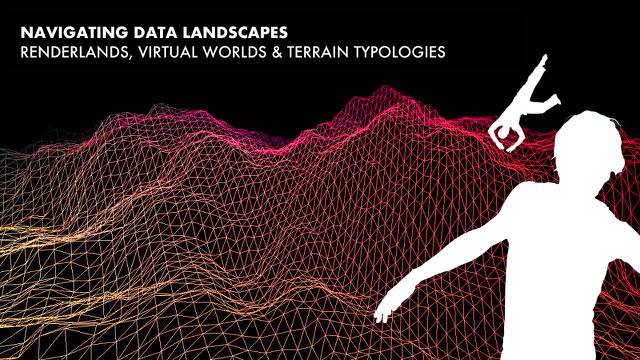Afternoon, 28th August, 2018. Free to attend.
Manifold technological developments – from AI to cloud computing – are rapidly changing the landscape of the digital. Complementing the RGS-IBG’s conference theme (Geographical landscapes/changing landscapes of geography), these workshops invite participants to investigate the effects of machine vision on a variety of phenomena: the form of urban life, the experience of driving, the dynamics of war, and the nature of gaming. The workshops aim to provisionally address a number of questions regarding machine vision, and its effect on the ability to ‘navigate’ (literally, metaphorically, conceptually, methodologically) new data landscapes. To what extent does machine vision alter our perception of the world? How might its proliferation affect everyday interactions? And, finally, what new concepts, methods or vocabularies might be needed to comprehend such vision?
The event will start with three parallel sessions which you will be able to sign up for on the day followed by a panel discussion. The sessions are:
Session 1: A screening and discussion of the film Where the City Can’t See directed by Liam Young and written by Tim Maughan. Where the City Can’t See is the first narrative fiction film captured entirely with laser scanners. Set in the Chinese owned and controlled Detroit Economic Zone (DEZ) and shot with the same scanning technologies used by autonomous vehicles, the near future city is recorded through the eyes of the robots that manage it. Across a single night a group of young car factory workers drift through Detroit in a driverless taxi, searching for a place they know exists but that their car doesn’t recognize. They are part of an underground community that work on the production lines by day but at night, adorn themselves in machine vision camouflage and the tribal masks of anti-facial recognition to enact their escapist fantasies in the hidden spaces of the city. They hack the city and journey through a network of stealth buildings, ruinous landscapes, ghost architectures, anomalies, glitches and sprites, searching for the wilds beyond the machine. We have always found the eccentric and imaginary in the spaces the city can’t see. Where the City Can’t See is commissioned by Abandon Normal Devices and St Helens Heart of Glass & University of Salford Art Collection. Produced by Liam Young and Abandon Normal Devices, with support from Forestry Commission England’s Forest Art Works and funding from Arts Council England
Session 2: An interactive exploration of the digital landscapes of virtual reality, video games, and driving simulations.
Session 3: A dive into the sometime murky waters of YouTube to explore, analyze, create and refine ‘terrain typologies’ present in autonomous vehicle videos.
Registration is open until the 17th August via this link: https://navigatingdatalandscapes.eventbrite.co.uk
If you have any questions or requests please email Tess Osborne.
